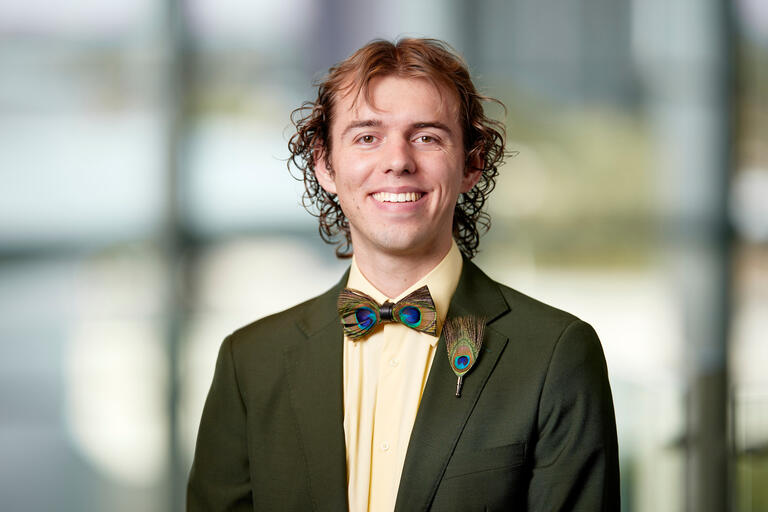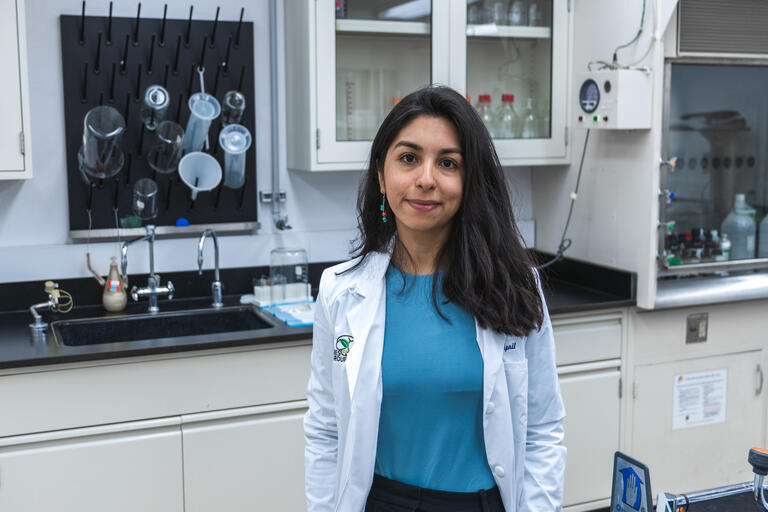He had flown F-4 jets in the U.S. Air Force. He had served in Korea. He had earned an undergraduate degree from the University of Georgia. So by the time Richard McCord was stationed at Nellis Air Force Base in Las Vegas in 1977, he was ready to think about the next stage of his career. He found that path at UNLV.
“I figured whether I stayed in the Air Force or not, I would need an advanced degree. They (the military) value advanced degrees, too,” McCord, now a UNLV donor, said.
He enrolled in the MBA program. After full-time days serving his country, he took night courses twice a week at UNLV, and spent another two nights a week in the library studying.
“I loved my classwork and really threw myself into it,” he recalled. “Learning is a great feeling. Especially learning things I really hadn’t been exposed to that much before – I loved the business classes.”
McCord graduated with his MBA in 1983 and got his first job at Paine Webber financial services. A few years later he joined Valley Bank of Nevada, which became Bank of America, where he would work for 29 years managing financial portfolios. At the time the bank was run by E. Parry Thomas and Jerome D. Mack, two of UNLV’s most historically influential supporters.
“They were really transforming UNLV into a more legitimate university, and after I retired in 2017, I decided I wanted to do my little part to contribute to that mission, too,” McCord said.
So when planning his and his wife Leslie’s estate recently, Richard McCord made a generous pledge to the UNLV Graduate College by making UNLV one of the beneficiaries of his retirement plan. “UNLV created my career,” he said. “The grad school means the most to me, because grad programs elevate a university’s reputation.”
About Planned Giving
“Planned giving” refers to making a deferred gift to the university through the UNLV Foundation.
Some popular methods of planned giving include: wills and living trusts; beneficiary designations; charitable gift annuities; IRA charitable rollovers; and real estate donations.
Although many of these gifts to the university will be realized years or even decades from now, UNLV greatly appreciates donors’ foresight, generosity, and the ultimate impact planned gifts have on scholarships, research, and programs.
In fiscal year 2020, $3.6 million in charitable giving to UNLV came from wills and estates.
Fast Facts About Planned Giving
If you hear “planned giving” and think it’s only for people older or wealthier than you — or that it’s just too confusing to tackle — you’re not alone. However, planned giving is for people of all ages and economic statuses, and it doesn’t have to be difficult. Check out these common planned giving misconceptions and get the answers you need.
- Planned gifts are complicated and confusing. They don’t have to be. There are many types of planned gifts: Most are simple and affordable, like a gift in your will or living trust. You just need to find the one that best meets your needs.
- Planned gifts are only for the wealthy. Anyone can make a planned gift — no matter if your estate is worth $100 or $1 million. Gifts of all sizes make a difference to UNLV. In fact, you may even be able to make a bigger impact than you thought possible when you make a planned gift.
- Wills are only for older adults. Having a plan for the future is important — no matter your age. An estate plan makes your wishes known and provides your loved ones with peace of mind. Include UNLV in Your Future Plans By including a gift to UNLV in your estate plans, you create a legacy of support at UNLV. We can help you get started. Contact Bud Beekman at bud.beekman@unlv.edu or 702-895- 3641 for help finding the right gift for you.
“As any alumnus, you want your university’s reputation to grow,” said McCord. “You want to be proud to say, ‘I got my degree there.’ So I thought I would invest in the fellowship for graduate students to allow them to focus on academic work and not worry as much about having to work outside, as I did.”
UNLV attained R-1 “very high research activity” status by the Carnegie Classification of Institutions of Higher Education in 2019. Gifts like McCord's have helped push the university along in its Top Tier quest.
“We are so incredibly grateful to Mr. McCord for his generous gift to the Graduate College. His support of students through graduate fellowships will not only impact the lives of the fellowship recipients, but also advance UNLV,” said Kate Korgan, dean of the Graduate College. “Fellowships allow doctoral students to continue their impactful research and academic pursuits without the added pressure of additional employment. The advanced research these fellows will do not only helps propel the student to program completion, it also contributes new knowledge to the student's field of study, and advances the university and community as a whole. Mr. McCord’s investment in graduate education is impactful in many ways, and will be for many years to come. I am deeply grateful for his support.”
McCord taught at UNLV as an adjunct professor, sharing his business knowledge as a professor of macroeconomics from 2000 to 2010.
“Over the course of 10 years, I taught probably a thousand students,” he said. “I was giving some of them their first exposure to the principles of economics. I had a few students through the years who have told me that I changed the way they think.
“It was very gratifying for me as a person. I loved it, and I love planning a gift now.”
McCord said he believes in the cyclical nature of learning, succeeding, and giving back to the university as a way to ultimately elevate the entire city.
“I believe in the old saying that ‘if you want great cities, you need great universities,’” he said. “That’s important to me. Vegas has been my home now for 43 years and I’m thrilled to see the growth, and I’m thrilled to see UNLV’s growth. It’s inspiring to watch and to be a part of.”



